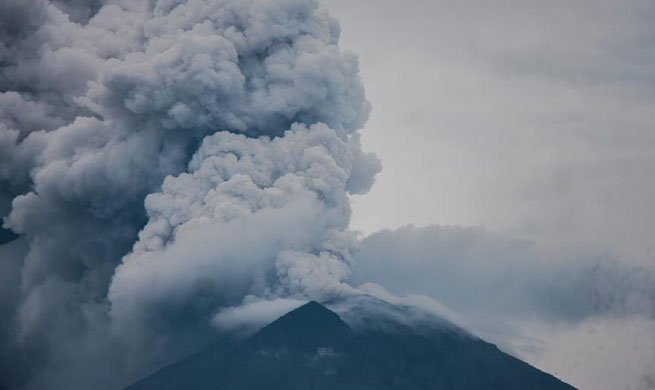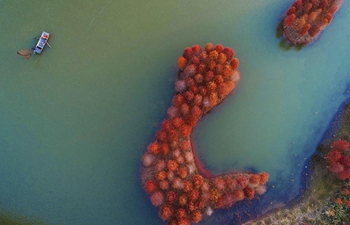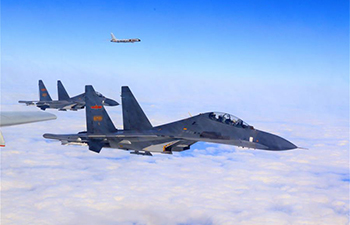CHICAGO, Nov. 28 (Xinhua) -- Radiologists can now use artificial intelligence (AI) to improve medical image analysis and speed up the reading of scans and X-rays, said experts at the on-going Radiological Society of North America (RSNA) conference in Chicago.
Infervision, a tech company using AI and deep learning, a subset of AI, to assist and improve medical image analysis, introduced on Tuesday an AI platform to help radiologists detect and diagnose stroke faster.
The new stroke screening system can assist doctors to determine which type of stroke a patient may have suffered, either a hemorrhagic (bleeding) stroke or an ischemic (blood clot) stroke, so that patients can receive effective and faster treatment, said the company.
To develop this diagnostic capability, the platform applied deep learning technology and trained many thousands of data sets of annotated medical images.
"We are committed to helping doctors speed their diagnosis of stroke so patients can get the best and most appropriate treatment as fast as possible," said Kuan Chen, CEO of Infervision.
Researcher Hugo Aerts, from Harvard University in Cambridge, the U.S. state of Massachusetts, likened the impact of AI on radiology to that of self-driving cars on transportation.
Just as self-driving is capable of exceeding human performance in some instances, AI can assist radiologists in areas where they have limitations, such as determining if a lung nodule found on screening is benign or malignant, he said.
"Benign and malignant nodules often look similar to humans," Aerts said. "By finding very subtle differences in the nodules, AI can go beyond human performance."
Current methods for sampling lung tumors such as invasive needle biopsy have limitations, said Aerts, as they are often unable to fully capture the spatial state of the tumor.
In contrast, radiomics, which represents the quantification of tumor characteristics through medical imaging, is ideally suited to tracking a tumor's physical characteristics before, during and after treatment.
"Through the application of AI in radiology, we can extract more information from the image than meets the eye, improving treatment for the patient," Aerts added.

















